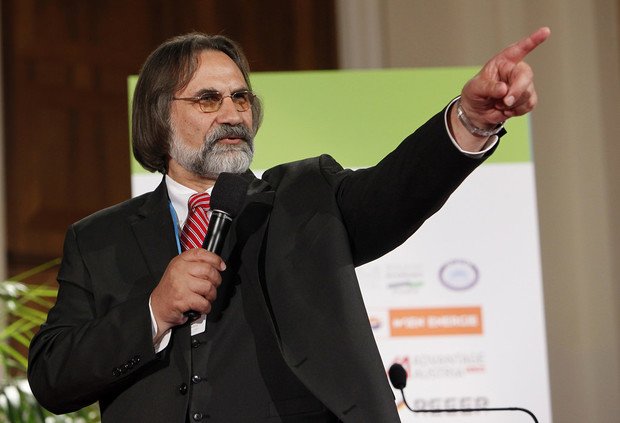''We need to be at zero emissions by mid century''
Energy economist Nebojsa Nakicenovic about the future of European energy markets
While Russia and the United States keep fighting for the European gas market, debates over the EU's energy security are clouding efforts to slash greenhouse gas pollution, considers Nebojsa Nakicenovic, an energy policy expert and the head of the International Institute for Applied Systems Analysis (IIASA).
Russia and the US should set aside their fight over natural gas markets and focus on slashing fossil fuel pollution more quickly, says Bloomberg citing Nebojsa Nakicenovic. The eminent scientist heads the IIASA, an international foundation with the mission ''to provide insights and guidance to policymakers worldwide by finding solutions to global and universal problems through applied systems analysis in order to improve human and social wellbeing and to protect the environment''. On Saturday, the scientist told the American Association for the Advancement of Science in Washington that reining in the greenhouse gases damaging the planet is a much more important priority than shaping the future of gas exporters. ''Infrastructure is important insomuch as it provides the resilience to the system,'' said Nakicenovic.
Currently, European politicians continue to discuss how much weight they should give energy security issues over the environment. Many European countries, such as Germany, Great Britain and Italy, are now trying to phase out power plants that use coal in favour of renewables. New solar and wind technologies can soon generate cheaper electricity than existing fossil fuel plants, considers BloombergNEF research service. In that case, gas can be marginalised, and new facilities being built across Europe will be used only when consumption peaks or on windless and cloudy days.

Another scenario is that Europe evades the shift to renewables due to pipeline politics. Europe's domestic gas production is currently in decline, but LNG cargoes and the 1,200-kilometre Nord Stream 2 pipeline can flood Europe with new supplies. It will provoke a ''counter transformation'' where gas undercuts all its competitors, assumed Nakicenovic. ''It has been clear that decarbonisation with gas as a bridge was possible,'' he said, adding that such scenario required a greater transformation.
According to some estimates, Europe may face a gas shortfall already by 2030, and the deficit can exceed 100 billion cubic metres a year by 2035. Thus, if gas becomes part of the climate solution, European leaders need to plan now for massive new flows. ''Now we have no time to waste. We need to be at zero emissions by mid century,'' claimed the energy economist, whose remarks are meant to refocus debate about how to shape Europe's energy networks.